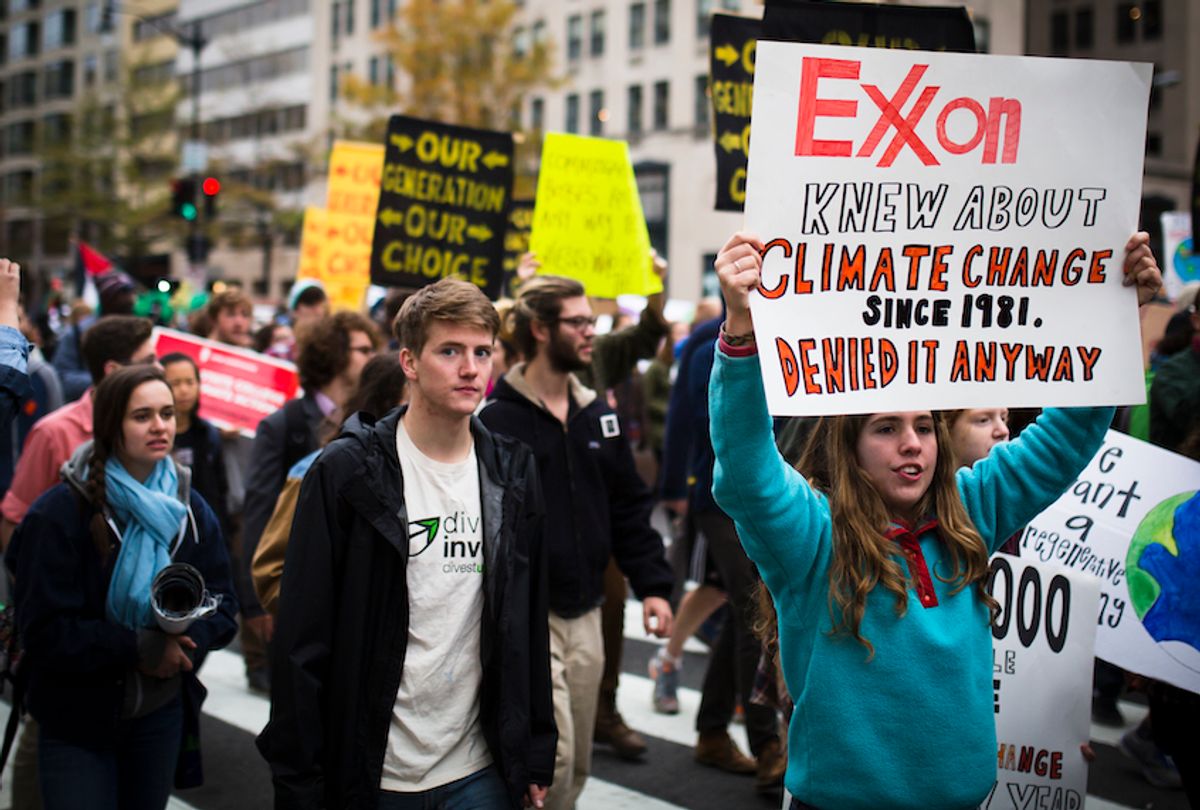Climate campaigners on Tuesday marked a major milestone in the fight to eliminate the use of fossil fuels and transition to a green energy economy as ExxonMobil was dropped from the S&P Dow Jones Industrial Average after nearly a century.
The oil giant, the oldest member of the Dow, was replaced on the index by software company Salesforce as more than 100,000 people were displaced by wildfires raging across California, a third year of global Fridays for Future climate action protestskicked off, and the Republican Party was rebuked for failing to even mention the planetary emergency on the first night of its national convention.
The finance world, 350.org executive director May Boeve said, has been forced to "[wake] up and [cut] ties with these climate criminals."
"Big Oil has fallen," Boeve said. "Our job is to make sure they don't take us down with them. Fossil fuel companies like Exxon knew and lied for decades about the main cause of the devastating impacts we're now experiencing across the globe: from fires, storms, and floods to droughts and rising seas... We are rising up to make polluters pay for their destruction."
Bill McKibben, co-founder of 350.org, credited climate campaigners who have spent decades educating the public about the climate crisis and the dangerous effects of extracting fossil fuels from the Earth, and demanding a transition to renewable sources of energy like solar and wind power.
In April, oil prices fell below $0 per barrel for the first time on record, prompting calls by climate action advocates to nationalize the oil industry rather than continuing to prop it up.
Meanwhile, the solar and wind sectors have grown at a rapid rate in recent decades, with job growth in the renewable field outpacing oil.
"Exxon's deep fall today is another powerful reminder of how fossil fuels are too volatile to be the basis of a resilient economy," said Boeve. "It is past time for Exxon to recognize that it is not only one of the most responsible for the climate crisis, but also that its assets are quickly becoming stranded as we move towards more sustainable, resilient, and regenerative economic systems, based on renewable, accessible, and just energy sources."
A poll taken last year by Business Insider found that a majority of Americans favored transitioning away from fossil fuels and toward renewable energy sources, and aligned with other recent findings by Gallup.
Seven oil companies have downgraded their assets by at least $87 billion in the last nine months, while more than 1,200 institutions representing more than $14 trillion in assets have committed to fossil fuel divestment.
"None of this is to say Exxon is officially done for or that it doesn't still hold massive power," wrote Brian Kahn at Earther. "A company worth $175 billion with its tentacles latched onto the Republican Party is still a formidable foe. But it does show a different world is possible. Fingers crossed the Dow Jones can get Chevron out of there next."



Shares